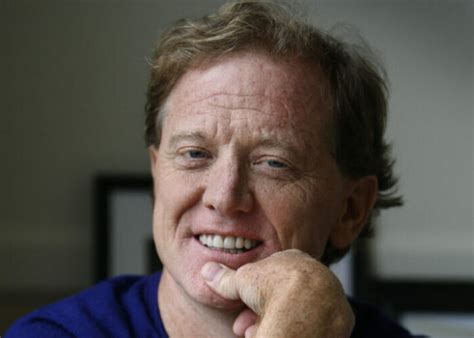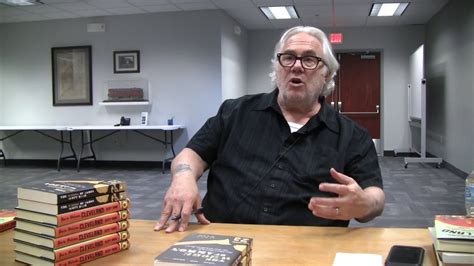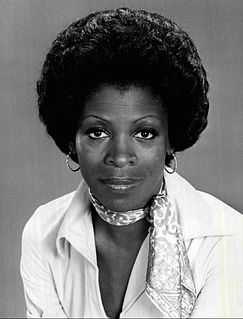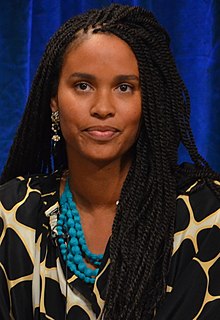A Quote by Lena Waithe
To be a black person is to come from a long bloodline of survivors and storytellers, with a resilience that people can't even comprehend.
Quote Topics
Related Quotes
I was born in Jackson, Mississippi, in 1969, in a time and place where no one was saying, Look how far weve come, because we hadnt come very far, to say the least. Although Jacksons population was half white and half black, I didnt have a single black friend or a black neighbor or even a black person in my school.
I was born in Jackson, Mississippi, in 1969, in a time and place where no one was saying, 'Look how far we've come,' because we hadn't come very far, to say the least. Although Jackson's population was half white and half black, I didn't have a single black friend or a black neighbor or even a black person in my school.
I remember when I had my show [The Chris Rock Show on HBO], I used to run my show. It was so hard to get people to bring sketches to me. No one had ever worked for a black person before. Even the black people hadn't worked for a black person. It literally took a month or two for everybody to know: I'm really running the show.
White people scare the crap out of me. I have never been attacked by a black person, never been evicted by a black person, never had my security deposit ripped off by a black landlord, never had a black landlord, never been pulled over by a black cop, never been sold a lemon by a black car salesman, never seen a black car salesman, never had a black person deny me a bank loan, never had a black person bury my movie, and I've never heard a black person say, 'We're going to eliminate ten thousand jobs here - have a nice day!'
As a black person on the outside, because there's so much black art and so much of black people's work circulating, so many people imitating what black people do, you would think that there'd be more black people on the business side. It didn't cross my mind that every label head, for the most part, is a white guy.
What inspired me most was the resilience of the Cambodian people. The country is still living with the trauma of the brutal Khmer Rouge regime. People lost everything - family, friends. The rich culture of Cambodia was nearly extinguished. They are a nation of survivors. And while poverty and infant mortality affect a disproportionate amount of the people there, those I met were hopeful for the future and doing the best they can with
what they had.
When someone asks me about violence, I just find it incredible, because what it means is that the person who’s asking that question has absolutely no idea what black people have gone through, what black people have experienced in this country, since the time the first black person was kidnapped from the shores of Africa.
There is still an assumption among many people that to be black is to be lower class. In the last fifteen to twenty years, perhaps even further back than that, there's also been an explosion of a very wealthy black class in the United States, but those people are often treated as special cases: they're athletes, entertainers. Jay-Z. Basketball players. The country metabolizes the fact these rich black people exist, but it seems only to reinforce the idea that every other black person is limping along in poverty.



































